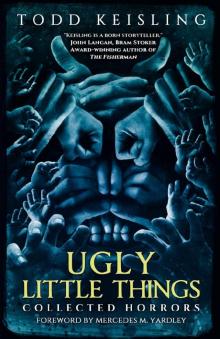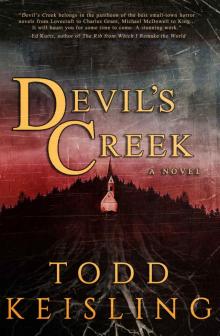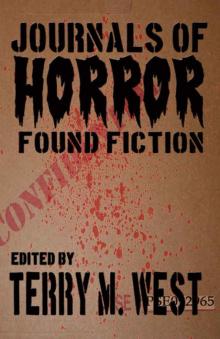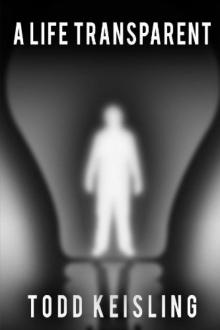- Home
- Todd Keisling
Devil's Creek Page 9
Devil's Creek Read online
Page 9
Waylon weighed his options and decided to err on the side of ignorance. He’d made it this far in life by letting people think him dumb. No sense in stopping now. “Nuh uh. I found this spot yesterday. It’s quiet and no one’ll bother us out here. Why?”
Zeke stared at him for a moment, reading his face, looking for a con. And there was a con, but Waylon wasn’t about to let him see it. Instead, Waylon screwed up his face and grunted, shifting the weight of the propane tank once again. “Come on,” he said, “let’s keep moving. This fucker’s heavy.”
Finally, Zeke took a breath and closed his eyes. A soft breeze picked up around them, easing the burden of heat pressing upon their faces.
“It’s…yeah, it’s nothing. Never mind.” Zeke took a step toward the footbridge, and then another. “Let’s keep going.”
Waylon Parks watched his friend move on by, following the faint outline of an overgrown trail sloping upward into the brush. Birds chirped overhead, calling out another warning both men couldn’t understand.
3
Suspended. My son, suspended. For hitting another kid.
Reverend Bobby Tate took a breath as he waited in the hallway outside his son’s room. He stood before a small decorative hutch, above which hung photos of his late wife and Riley when he was younger. Between the photos hung a cross, representing a trinity of everything Bobby Tate held dear in this world. Please, Lord, grant me patience and understanding. Please give me the strength to resist killing my son. Amen.
He didn’t mean that last part but including it in his prayer did make him feel better. Riley had tested his patience before, seemingly every day since the boy turned thirteen, slipping into the devilish throes of adolescence. Bobby suspected his son’s rebellion was the lord’s way of making him pay penance for his own misdeeds as a teenager. God knew Bobby had his share of arguments with his grandfather, Jerry, many of which ended with Bobby’s backside meeting the business end of a paddle.
Those punishments helped shape him into the man he was today. A respected figure among the community, a devout Christian, a leader of a congregation of good-hearted souls who did what they could for the church, and for each other. Years from now, when people looked back on Bobby Tate’s tenure as reverend of First Baptist, they’d say good things about him.
They’d say Jerry Tate did a great job raising his grandson. They’d say Bobby Tate was a good man, with a good heart, a man who did the best he could raising his son after his wife, Janet, passed away from cancer.
They’d say he had a smart-ass weirdo for a son.
They did say he had a smart-ass weirdo for a son. At least, that’s what Ronny Cord told him over the phone five minutes after he got the call from the school. Cord said some other things, too, but Bobby tuned him out. He was in the middle of planning his Sunday sermon when the calls happened; afterward, he had to think about hiring an attorney. All because of Riley. Always because of Riley.
How could he possibly approach this as a parent? They barely spoke to one another as it was, and when they did, it was usually in one- or two-sentence affirmations and platitudes. And just when he thought he had his son figured out, the boy went and did something to surprise him, shaking up the status quo. First, it was the awful, evil music, and then the black clothing, the nail polish, the backtalk and isolation. He spent most of his free time on his phone or on his computer. His grades were still good, thank God, but Bobby questioned how much longer they would last.
Despite his new turn in identity, Riley remained involved with his Youth Group at First Baptist, something which Bobby was eternally grateful for. He didn’t fully understand why, given his son’s new penchant for rebelling against everything Bobby wanted for him, but who was he to question divine providence? The lord worked in mysterious ways.
Bobby wanted to believe there was a good reason for his son’s actions this afternoon, but he was hard-pressed to find one. Regardless, some sort of punishment was in order. Grounding the boy was an option, but Bobby was torn on keeping his son from the camping trip the Youth Group planned for the weekend. He feared keeping his son from the one thing he still wanted to do would make him resent Bobby even more.
He sighed and stared at the cross hanging on the wall. My lord, help me find a middle ground with my son. I fear I’ve lost my little boy. If only Janet were still with me—
Riley uttered a loud belch as he left his room. Bobby pursed his lips in disgust, wanted to curse at the boy, but practiced restraint in front of his savior. Instead, Bobby turned from the cross, mumbled “Amen” under his breath, and took a step toward his son. Riley was dressed in those awful ripped jeans Bobby hated so much (“They make you look like you’re too poor to afford decent clothes.”), a black T-shirt by that band of Stauford boys who all burned to death out west (“God rest their souls, amen.”), and nails freshly painted black.
They called them goths back in Bobby’s day. God knew what they called them now, and despite his best efforts, his son became one seemingly overnight.
“Son?”
Riley turned to him, instantly put out by the sound of his father’s voice. Bobby’s blood pressure rose a few points, but he held back the tide of anger, reminding himself he was an acolyte of the lord. Janet’s sweet voice chimed in his head. You’ll catch more flies with honey than vinegar, hon.
He cleared his throat. “Listen, I know you don’t want to talk to me right now, but I need to understand why you did what you did.”
Riley stepped back, leaning against his room’s doorframe. Bobby knew this maneuver. One wrong word and his son would shut the door, shut him out, shut out the whole world if necessary. God, grant me patience and understanding…
“Violence is never the answer,” Bobby went on, “no matter how much it might seem like a solution at the time. I’m sure you think Jimmy Cord deserved it.” He snorted, fighting back a chuckle. “Heck, knowing what I know of his daddy, I wouldn’t doubt it one bit if Ronny’s son did something to deserve it. But my point is, it ain’t your place to pass judgment. It’s the—”
Riley rolled his eyes. “It’s the lord’s place, yeah, I got that, Dad. Can I go now? Ben’s supposed to be here soon. I don’t want to be late.”
“Wait a minute, Riley.” He put his hand on his son’s shoulder and gave him a firm squeeze. “You can’t do what you did without facing consequences. That’s not how the world works.” Riley bristled at the suggestion. “Relax, I’m not going to keep you from the camping trip. But we are going to have to work out a suitable punishment.”
“Fine,” Riley said. “I can live with that.”
“Good,” Bobby said, smiling. “I want you to know you can talk to me, son. I know we don’t see eye to eye on everything, and I know I don’t always give you the answers you want, but I will still listen to you.”
“Dad,” Riley said, returning the gesture, putting his hand on his father’s shoulder. The boy smirked, a look Bobby knew too well these last few years, and in hindsight, he should’ve seen what was coming. “I know. And I mean this when I tell you, the bastard deserved it.”
Bobby slapped his son across the mouth, hard enough to bloody the boy’s lip. The pop of flesh smacking flesh startled them both. Bobby recoiled, stunned by his reaction. Riley, however, wiped his mouth and examined the bead of crimson on his fingertip. He blinked away tears and curled back his lip like Janet used to do when she was angry.
“I thought violence was never the answer?”
Bobby Tate slunk back into the hallway, his limbs filled with jelly, his heart broken. He wanted to say he was sorry, to plead for his son’s forgiveness, but a deeper fire raging within told him not to. You deserved it, you disrespectful little shit.
He ignored the fire, reaching out to console his son. “Riley, I didn’t—look, I’m sorry, I shouldn’t have done that.”
But Riley wasn’t listening. He shouldered his backpack, shut off the light to his bedroom, and retreated down the hall toward the stairs without saying a wor
d. Bobby watched him go. When his son was out of sight, he gasped as tears trickled down his cheeks.
He looked up at the cross on the wall, to his savior for comfort, but Jesus had more pressing matters of His own.
4
Riley unslung the backpack from his shoulder and dropped it on the porch steps. He nursed the wound on his lip, hoping like hell it didn’t swell or bruise. The last thing he needed was to be made fun of all weekend by the other kids, especially since Rachel Matthews was going to be there. Then again, that old saying about chicks digging scars had to have some truth. He took a seat on the porch steps and busied himself with checking messages on his phone.
Ben texted ten minutes ago—“On our way!”—while Riley was busy avoiding his father and packing for the trip. Their confrontation was inevitable, although it hadn’t gone quite like Riley expected it to. Riley didn’t think his father would ever strike him, but with his lip throbbing, he wasn’t surprised, either.
All that preaching on Sundays was hot air. His father’s actions proved what Riley always knew in his heart.
Still, the pain he felt ran deeper than his swollen lip. It hurt his pride, his heart, and when he looked up from his phone, he discovered the world was glassy, clouded. He blinked away tears, wiped them on his sleeve, and snorted back a quiet agony growing inside him. Janet Tate would be gone three years this October, and every day she was absent, Riley felt a little more alone in the world, a little more like a stranger in his own home.
“Dammit,” he mumbled, wiping his eyes again. No matter how hard he tried to keep them back, the tears kept coming, flooding over his cheeks.
Miss you, Mom. Wish you were still here.
Janet was loved among the community, and her loss was felt by everyone, but perhaps none more so than her son. When his father was too busy with the church, Janet took the time to attend to Riley’s needs in school, helping him with homework, talking to him about his reading assignments, and though she didn’t understand his taste in music, she at least tried to.
His father, on the other hand, dismissed his son’s choices as acts of rebellion, pushing him toward a life of devotion to the church. Any time his father tried to connect with him on some superficial level, it was with the pretense of teaching some biblical lesson. Bobby Tate counted his son as part of his flock, a fact which troubled Riley more than anything else.
“You care about that fuckin’ church more than me,” he whispered, picking at the excess nail polish along the ridge of his thumb. “Mom would’ve listened. All you do is talk.”
A loud honk startled him from his thoughts. Riley looked up to see the baby blue church bus turn slowly into his driveway. Ben’s older brother, Daniel, sat behind the wheel and gave the horn a series of taps as Riley climbed to his feet. The loud bursts lifted the cloud from his head, offering some much-needed levity to his mind. He even managed a smile as he walked toward the bus.
“Riley?”
The boy’s blood went cold at the sound of his father’s voice. He looked back at Bobby.
“Yeah?”
“Be careful, son. I…” Bobby trailed off, frowning as he considered his words. He waited a beat and then waved. “Have a good time. I love you.”
Riley sighed, swallowing back a mouthful of sarcastic retorts. “Love you, too.”
The words left a bitter taste of copper on his tongue. He shouldered his backpack and marched for the bus. Onboard, he surveyed the seating arrangement. Boys in the front, girls in the back. He caught Rachel’s eye as he took a seat next to Ben. She smiled at him, and he felt a familiar flutter in his gut. See you later, he thought, secretly hoping she could hear him.
“What happened to your lip?”
“Nothing,” Riley said. The word tasted of copper as well.
5
Twenty minutes later, as the First Baptist church bus made its way to the south end of town toward the Cumberland Falls Highway, Jack Tremly parked his Mazda across the street from a place called Devlin’s On Main. He didn’t see Chuck’s car, so he waited a few minutes, checking messages on his phone. His agent asked, “Everything going okay?”
Jack typed a brief reply—“Kidnapped by locals. Forced into sideshow act. Send help”—and sent the message with a smile on his face.
A long shadow fell over his car as the sun dipped toward the horizon. Minutes later, the restaurant sign lit up in bright red neon, promising fine dining and spirits. Jack looked up, stunned by the sudden reddish glow. He tried to remember what Main Street looked like after hours. Dead, for the most part. Most businesses closed at a decent hour back in those days. Now, however, many of the storefronts along Stauford’s main thoroughfare kept their lights on and their doors open.
Two couples and a group of young women went inside Devlin’s On Main. A young man in a black apron passed them on his way out; a moment later, he stood beneath the corner streetlight and lit a cigarette.
Jack watched the busboy for a few minutes, taking interest in the contrast of red glow and phosphorous light, the way the cigarette smoke looked like a lazy tendril reaching down from the sky. He wished he’d brought his sketchbook, so he took a photo with his phone for later reference.
Chuck Tiptree parked his BMW in an open space behind Jack’s Mazda. A minute later, they made their way into the restaurant. While they waited to be seated, Jack took in the décor. The place was fancier than it had any right to be, especially in a tiny town like Stauford, with recessed lights offering dim halos around a series of tables adorned with candles and red tablecloths. A live band played a slow folk cover of Roy Orbison’s “In Dreams” at the far end of the room, and Jack was surprised to see a few couples were even slow dancing in front of the small stage. The bar sat in the center of the room, every stool occupied with patrons nursing drinks, sulking over their phones, commiserating over another dime earned, another week gone.
What caught Jack’s eye, however, was the framed image hanging over one section of the bar, between the drink menu and a series of framed photographs of various celebrities. The framed print featured a pale woman looking back over her shoulder, with half her face obscured by locks of reddish-brown hair. A black robe draped over one side of her body, dipping low enough to reveal the tentacle tattoo on the curve of her thigh. A bright red apple sat in her hand, held up in offering to a falling star while the world burned to cinders around her.
Jack knew the image well, having labored for weeks over capturing the model’s proportions. The model’s name was Audra Gray, and he’d slept with her after each painting session, enough times he thought they meant something to each other. He had entire sketchbooks of her sleeping figure, captured in the early hours when his nightmares sent him screaming from slumber. She’d left him for the west coast and its promise of fame, citing his lack of success as a reason for ending their relationship.
Morning Star was his first professional sale. Six months after the sale, he’d had his first gallery showing, he’d signed with Carly, and he was in talks to produce concept art for an upcoming horror film. The last he’d heard, Audra was waiting tables at a club called The Hyades on the Sunset Strip, but that was a couple of years ago, long before the place burned to the ground. Seeing the painting and her lithe figure once again, he felt a somber tinge of nostalgia, the ghost of heartache rattling its chains. He hoped she was okay.
Chuck leaned close and said, “Table or bar?”
“Table,” Jack said instantly. He hadn’t eaten since lunch, and the smell of food from the grill made his stomach grumble.
After they were seated, Jack turned to Chuck and pointed out the painting. “Looks like I’ve got at least one fan here in town.”
Chuck turned around, looking back at the bar. “Yes, indeed. One of the owners is a fan of yours. She’ll be joining us soon.”
“She?” Jack arched his brow. “Anyone I know?”
“Easy there, tiger. It ain’t like that. And yeah, in a matter of speaking, you do know her.”
“Th
at so?”
“Yeah.”
Jack smiled. “Fair enough. I’ll wait in suspense in the meantime. What about the other owner?”
Chuck beamed. “You’re lookin’ at him.”
A young bubbly waitress approached their table. “Hi, Mr. Tiptree. Will you be having the usual today?”
“Sure will, Darla.”
After they ordered drinks, Jack shifted back in his seat and laughed. “Never took you for an entrepreneur.”
Chuck shrugged. “One does what one can. Food and drink are on the house, by the way.”
“Much obliged,” Jack said. “How long have you owned this place?”
“Few years now. Bought it when Big Ron Taswell retired and sold the place.”
Although the restaurant seemed to be a welcome addition to the town, Jack felt a tinge of sadness knowing Ron’s Department Store was no longer in business. Mamaw Genie used to take him there to buy school clothes every August and January. He remembered Big Ron always had a handful of pretzels, and when he spoke, crumbs flew from his mouth in all directions. Nostalgia aside, Jack wasn’t sure what surprised him more: that “Big” Ron Taswell didn’t pass on the family business to his sons, or that Chuck Tiptree owned a restaurant.
“About a year after I bought it, I took on a partner to help manage the renovations. We opened a year and a half ago and have been going strong ever since. Especially since the community voted to allow the sale of liquor.”
After Darla brought their drinks—a dirty martini for Chuck, a beer for Jack—Chuck slid a piece of paper across the table. “Here’s the number for the contractor I told you about earlier. Tell ‘em I sent you. Should give you a good rate on the windows.”
Jack took the note and put it in his pocket. “Thanks, man. I managed to get the paint off the siding and covered the windows in plastic, but not much else.”
“Yeah, I wondered about that.” Chuck took a sip of his martini. “To be honest, I was kind of surprised when you called. You seemed upset. Everything okay?”

 Ugly Little Things
Ugly Little Things Devil's Creek
Devil's Creek Journals of Horror: Found Fiction
Journals of Horror: Found Fiction A Life Transparent
A Life Transparent The Final Reconciliation
The Final Reconciliation